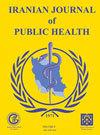Mechanisms of Intersectoral Collaboration in the Health System: A Scoping Review
IF 1.4
4区 医学
Q3 Medicine
引用次数: 0
Abstract
Background: The implementation of health interventions requires the collaboration of various sectors outside health due to the multidimensional nature of healthcare. Building effective partnerships demands the use of intersectoral mechanisms that facilitate the leadership and implementation of these programs. In this review, the mechanisms of intersectoral collaboration (ISC) and their results were identified. Methods: This scoping review was conducted in 2020. Using relevant keywords, all documents related to ISC in the health system were identified by searching four databases (PubMed, Scopus, Science Direct, and Web of Science), Google, and Google scholar search engines. In the initial search, 2911 documents were extracted. Based on the selection criteria 52 documents were selected for content analysis. Results: Five areas of ISC were identified, including funding (collection, pooling, and distribution of funds), governance and leadership (political commitment, rules and regulations, control and evaluation, and stakeholder engagement), structural mechanisms (interorganizational, government-based, and program-based structures), process tools (information tools, support tools, and resource and service sharing), and models and frameworks (general, national, and program-specific models). Conclusion: An intersectoral framework or model be developed that considers the financial, structural, and leadership aspects as well as the necessary process tools required for each program. Moreover, it should be considered communication and human resources empowerment in each intervention.卫生系统部门间合作机制:范围审查
背景:由于卫生保健的多层面性质,卫生干预措施的实施需要卫生以外各部门的合作。建立有效的伙伴关系需要利用部门间机制,促进这些方案的领导和实施。在本次审查中,确定了部门间合作机制及其结果。
方法:本综述于2020年进行。利用相关关键词,检索PubMed、Scopus、Science Direct、Web of Science四个数据库和谷歌、谷歌学者搜索引擎,确定卫生系统中所有与ISC相关的文献。在最初的搜索中,提取了2911个文档。根据选取标准选取52篇文献进行内容分析。
结果:确定了ISC的五个领域,包括资金(资金的收集、汇集和分配)、治理和领导(政治承诺、规则和条例、控制和评估以及利益相关者参与)、结构机制(组织间、基于政府和基于计划的结构)、过程工具(信息工具、支持工具以及资源和服务共享)以及模型和框架(一般、国家和特定计划的模型)。
结论:开发一个跨部门框架或模型,考虑财务、结构和领导方面以及每个项目所需的必要过程工具。此外,在每项干预中都应考虑到通讯和人力资源授权。
本文章由计算机程序翻译,如有差异,请以英文原文为准。
求助全文
约1分钟内获得全文
求助全文
来源期刊

Iranian Journal of Public Health
医学-公共卫生、环境卫生与职业卫生
CiteScore
2.20
自引率
7.10%
发文量
0
审稿时长
2 months
期刊介绍:
Iranian Journal of Public Health has been continuously published since 1971, as the only Journal in all health domains, with wide distribution (including WHO in Geneva and Cairo) in two languages (English and Persian). From 2001 issue, the Journal is published only in English language. During the last 41 years more than 2000 scientific research papers, results of health activities, surveys and services, have been published in this Journal. To meet the increasing demand of respected researchers, as of January 2012, the Journal is published monthly. I wish this will assist to promote the level of global knowledge. The main topics that the Journal would welcome are: Bioethics, Disaster and Health, Entomology, Epidemiology, Health and Environment, Health Economics, Health Services, Immunology, Medical Genetics, Mental Health, Microbiology, Nutrition and Food Safety, Occupational Health, Oral Health. We would be very delighted to receive your Original papers, Review Articles, Short communications, Case reports and Scientific Letters to the Editor on the above mentioned research areas.
 求助内容:
求助内容: 应助结果提醒方式:
应助结果提醒方式:


